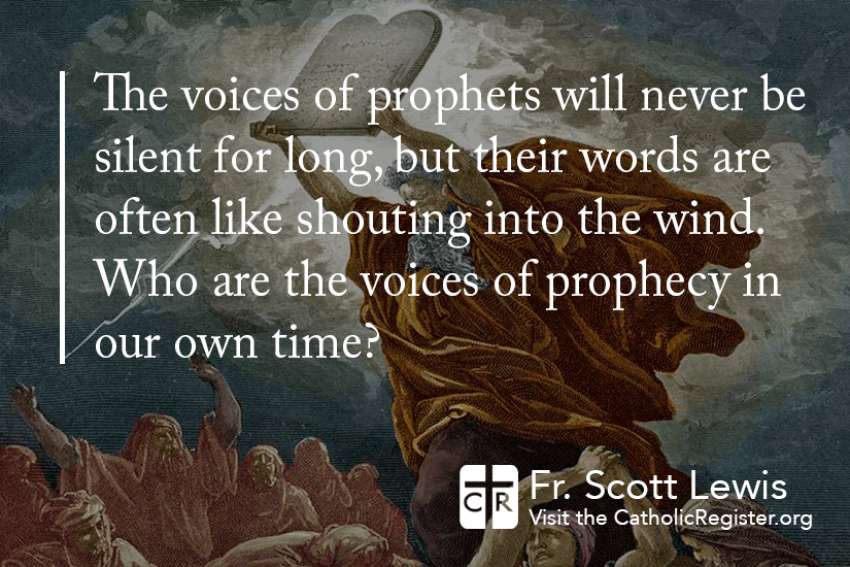Prophecies can be wonderfully vague and open-ended, evoking countless interpretations and practices.
Deuteronomy was not written in the time of Moses, nor does it reflect his actual words. It was written many centuries later, in the seventh century B.C., during the reign of the reformer king Josiah. Its purpose was to spark a return to a rigourous observance of the Torah and to combat the bane of Israelite religious life — idolatry and all its works.
In a fictionalized interchange between God and Moses, God promised to raise up another prophet from among them with authority equal to that of Moses. This prophet was to be obeyed, provided he spoke the authentic words of God rather than his own. But the prophecy doesn’t say when this prophet was to be raised. It didn’t name anyone, nor specify how many God had in mind.
That is the point — this prophecy had a very long afterlife, even into the New Testament. When it was written and subsequently “found” in the temple during Josiah’s reign, the southern kingdom of Judah was facing threats, first from the Assyrians and then the Babylonians.
This was the transition into Israel’s classical period of prophecy as Isaiah and Jeremiah were beginning their prophetic ministries. The prophecy legitimated and empowered the prophetic movement in Judea that lasted through the exile and into the period of reconstruction after the return.
For centuries, people waited expectantly for “the prophet” rather than “a prophet” — an unnamed figure coming into the world to speak in God’s name. In John’s Gospel, a delegation asked John the Baptist if he were the messiah or Elijah, then “the prophet” (1:21). The mystery prophet is referred to elsewhere (Acts 3:22; 7:37; John 6:14; 7:40).
The vagueness was probably deliberate and it was useful.
People could be assured that the nation would never be without an authentic voice of God and that God’s care for the life of the nation was never absent. The voices of prophets will never be silent for long, but their words are often like shouting into the wind. Who are the voices of prophecy in our own time?
Paul counselled his followers to remain in whatever state they were in when they accepted Christ. Institutions such as slavery or marriage would soon vanish, for the world was rapidly passing away. The Lord would return soon and all would be transformed.
That reasoning may have been valid then, but not so today, for we do not live with such apocalyptic intensity and expectation. We might also challenge his assertion that the unmarried are more committed to the Lord and married people are lukewarm or concerned with worldly things. People do not fit into such neat categories and many exceptions can be found in either camp.
How one serves the Lord is a matter of one’s own personal commitment, personality and level of spiritual maturity.
There are many ways to serve and just as many valid expressions of one’s spirituality.
The people in the synagogue were electrified. When Jesus taught, His words laid hold of their hearts and minds. His words were charged with power and life and were light years ahead of most everyday religious fare.
It was easy enough for them to perhaps connect Him with the long-promised prophet from Deuteronomy, but at this point, no one knew who or what He was. Almost no one — the demons certainly did and their theology was impeccable. The recognized Him as the Holy One of God and they knew their time was up. Their power was broken and they would soon be passing from the scene.
In Mark’s Gospel, every encounter between Jesus and the demons was a skirmish and minor victory in a vast cosmic battle being waged between the forces of darkness and light. To demonstrate His authority, Jesus denied the demons a speaking platform and put them under a divine gag order. This was an indication that with the arrival of Jesus on the scene, the cosmic battle would soon be over and the outcome was not in doubt.
A new day was dawning. When evil seems to reign supreme and be invincible, it is important to remember that its power is fleeting and there is One whose power never wavers.


